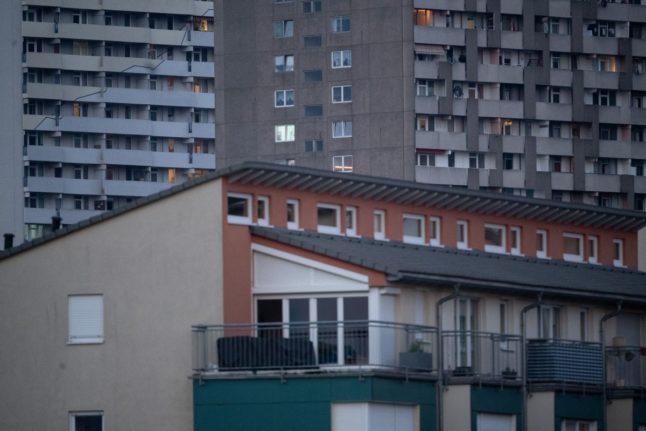Rental market data up until August 2023 was analysed for this report, which found that rents for both student flats and shared flats have continued to rise at all 38 university locations surveyed.
Prices on average went up six percent as compared to 2022.
Rental prices rose the most in Heidelberg, at eight percent, followed by Oldenburg and Berlin with 6.8 and 6.4 percent respectively. The lowest price increase was in the eastern German city of Chemnitz, where it was only one percent.
In 2021, prices began to dip in several cities amid the Covid-19 pandemic, but this effect is long gone, wrote the reports’ authors.
READ ALSO: An international students guide to the top 10 German universities
What accounts for the price increases?
A core reason for the rising prices is the shrinking supply of housing coupled with rising demand in many places, according to the report.
Only in Chemnitz were more flats and shared flats advertised last year than in previous years, while in all other university cities the number declined.
With the energy crisis, ancillary housing costs (Nebenkosten) have also risen sharply. On average, heating bills have risen by 43 percent since the beginning of 2022.
According to the evaluation, students in Tübingen pay the most for heating, at €2 per square metre, followed closely by Dresden and Munich. The lowest heating costs were in Chemnitz with €1.20 and in Mannheim with €1.30 per square metre.

Comparing Munich and Frankfurt
In order to better compare cities with each other, the Student Housing Report also calculates hypothetical “model flats” (Musterwohnungen) for students. This is based on looking at the presumed costs of flats of the same size, with the same facilities and in the same location. The only difference is the city in which the apartment is located.
The sample flat has a living space of 30 square metres, is located on the second floor in a building from between 2000-2010 and is in the immediate vicinity of a university.
At just under €700 per month, the most expensive model flats were in Munich and Frankfurt. These cities were followed by Stuttgart, Bonn, Darmstadt, Freiburg and Nuremberg.
READ ALSO: The German regions where house prices have doubled in six years
The eastern cities of Chemnitz and Magdeburg are particularly cheap at less than €300 per month. But western German cities like Bochum, Bielefeld and Saarbrücken are also comparatively cheap.
According to the report, students could only find a flat larger than 40 square metres for a maximum of €360 – or what they receive for the the Bafög (financial aid) housing cost supplement – at four university locations, namely in Rostock, Dresden, Magdeburg and Chemnitz. However, this figure doesn’t take ancillary costs into account.
These financial burdens could also influence the question of whether young people should start studying at all, says Uwe Schroeder-Wildberg, Chief Executive Officer of MLP. He added that Germany “can’t afford not to make full use of its academic potential”




 Please whitelist us to continue reading.
Please whitelist us to continue reading.
Member comments